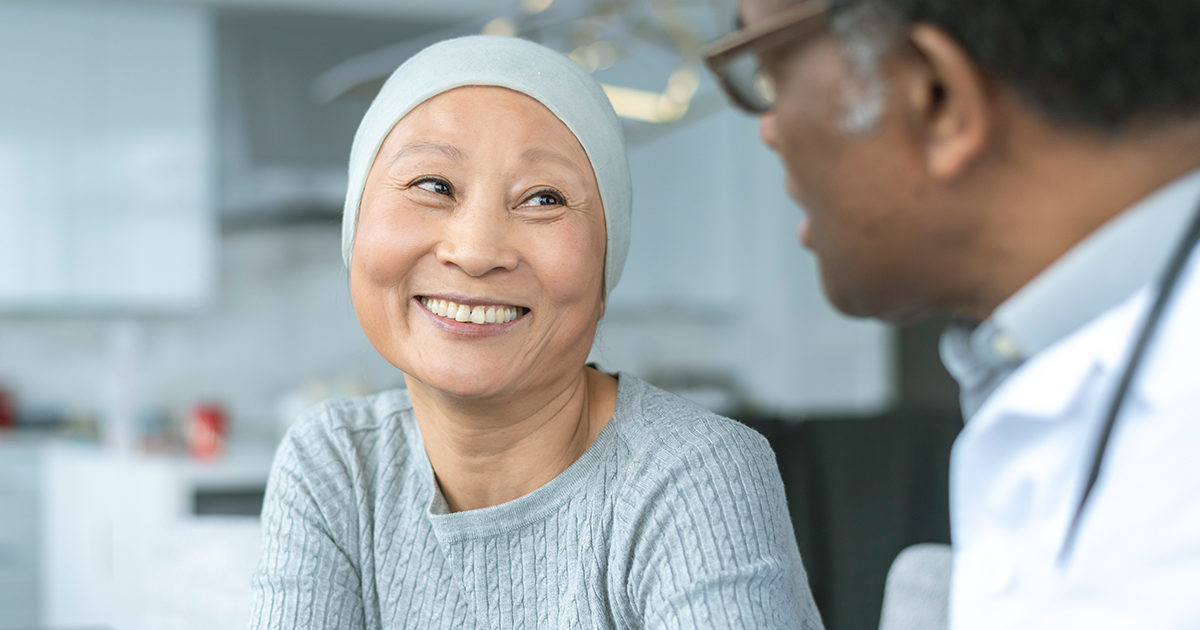What is thyroid RFA?
Thyroid radiofrequency ablation (RFA) is an in-office procedure in which a special probe delivers radiofrequency waves to noncancerous thyroid nodules, reducing their size. This procedure offers a noninvasive option for patients who would otherwise be recommended to have thyroid surgery.
Why is thyroid RFA performed?
Thyroid RFA can treat benign (noncancerous) thyroid nodules. While not all benign thyroid nodules require intervention, treatment is recommended for patients who experience disfigurement, disrupted thyroid function, or difficulties breathing, speaking, and/or swallowing due to their nodule. Patients typically experience a marked decrease in thyroid nodule size in the months following RFA. While the procedure represents a more gradual treatment approach than surgery, in which the entire nodule can be removed in one day, the benefits of thyroid RFA may include less pain and no scarring.
How do I know if I am a candidate for thyroid RFA?
After performing a biopsy to confirm that your thyroid nodule is benign, your physician may refer you to an endocrine surgery specialist to determine whether thyroid RFA is an option to manage your condition.
You may be a candidate for thyroid RFA if the following applies to you:
- You have been diagnosed with a benign thyroid nodule that causes compressive symptoms and/or interferes with thyroid function
- You do not wish to undergo surgery
What can I expect during thyroid RFA?
Your care team will provide you with detailed information about what to expect before, during, and after the thyroid RFA procedure.
Before your procedure, you will receive local anesthetic to reduce discomfort in the targeted area of the neck. Your provider will then inject a thin needle electrode at the site, delivering radiofrequency current to the nodule for up to twenty minutes.
As a noninvasive outpatient treatment, you are free to return home the day of your procedure following a brief observation period. Patients should arrange a ride home from the clinic to avoid driving in the first few hours after the procedure.
What can I expect after undergoing thyroid RFA?
You may feel pain or discomfort in the days after undergoing RFA. Complications resulting from the procedure are rare but can include damage to the nerves or blood vessels surrounding the targeted tissue.
Your physician will continue to monitor the size of your nodule during follow-up visits. Most patients experience an approximate 50% decrease in nodule volume within a month of RFA and upwards of 80% decrease after three months. Some patients with large nodules may require an additional round of treatment depending on the response from their first RFA procedure.
Care Team Approach
At UT Health Austin, we take a multidisciplinary approach to your care. This means you will benefit from the expertise of multiple specialists across a variety of disciplines caring for you in one place to avoid having to schedule multiple appointments with providers at locations all over the city. The Surgical Oncology Clinic team includes a fellowship-trained endocrine surgeon who specializes in diagnosing and treating cancerous and noncancerous conditions that affect the thyroid, parathyroid, and adrenal glands. Whether your endocrine condition is cancerous or not, the Surgical Oncology team works closely with your referring provider to provide integrated, whole-person care.
Through our Multidisciplinary Case Conferences, we collaborate with our colleagues at the Dell Medical School and The University of Texas at Austin to utilize the latest research, diagnostic, and treatment techniques, allowing us to identify new therapies to improve your treatment. We focus on applying advanced surgical techniques, including minimally invasive approaches, and nonsurgical treatments such as radiofrequency ablation. These procedures are offered with comprehensive attention to your complex needs, including medication management, nutrition, physical therapy, psychosocial wellbeing, and financial support. Advanced imaging and lab testing are also available on-site if needed.
Learn More About Your Care Team

Surgical Oncology
Health Transformation Building, 8th Floor
1601 Trinity Street, Bldg. A, Austin, Texas 78712
1-833-UT-CARES (1-833-882-2737)
Get Directions